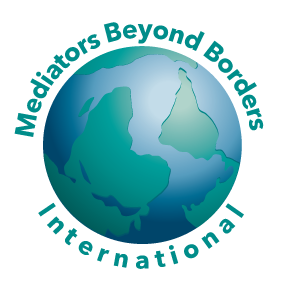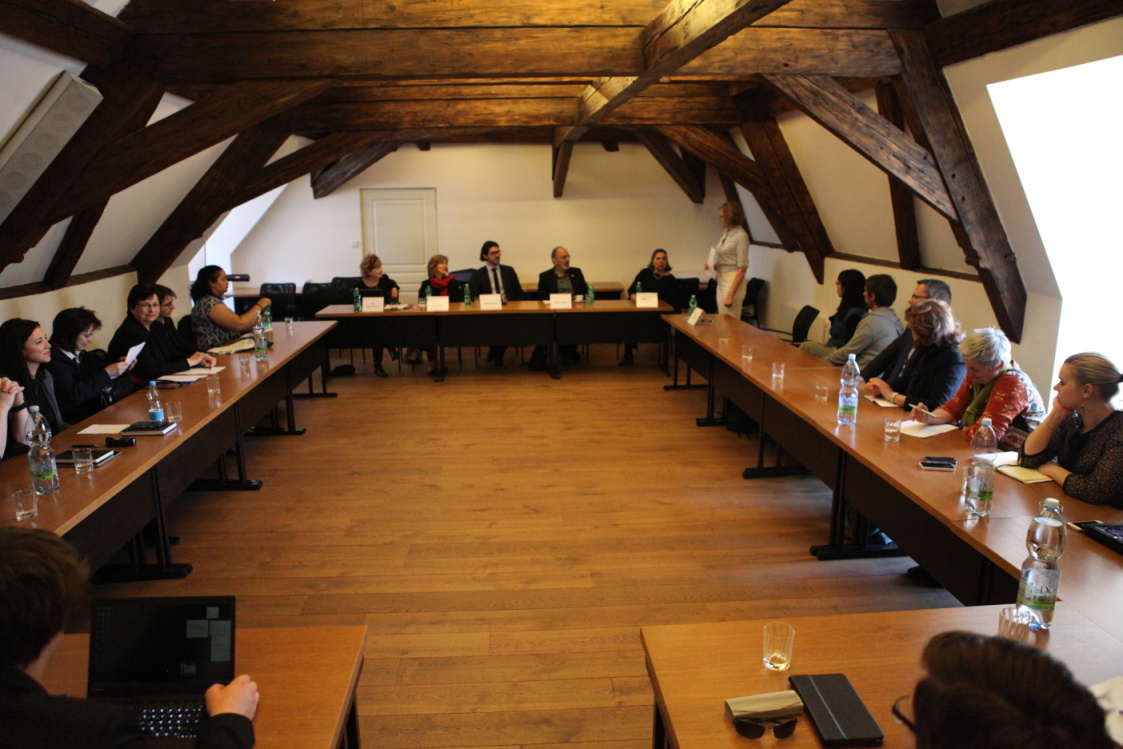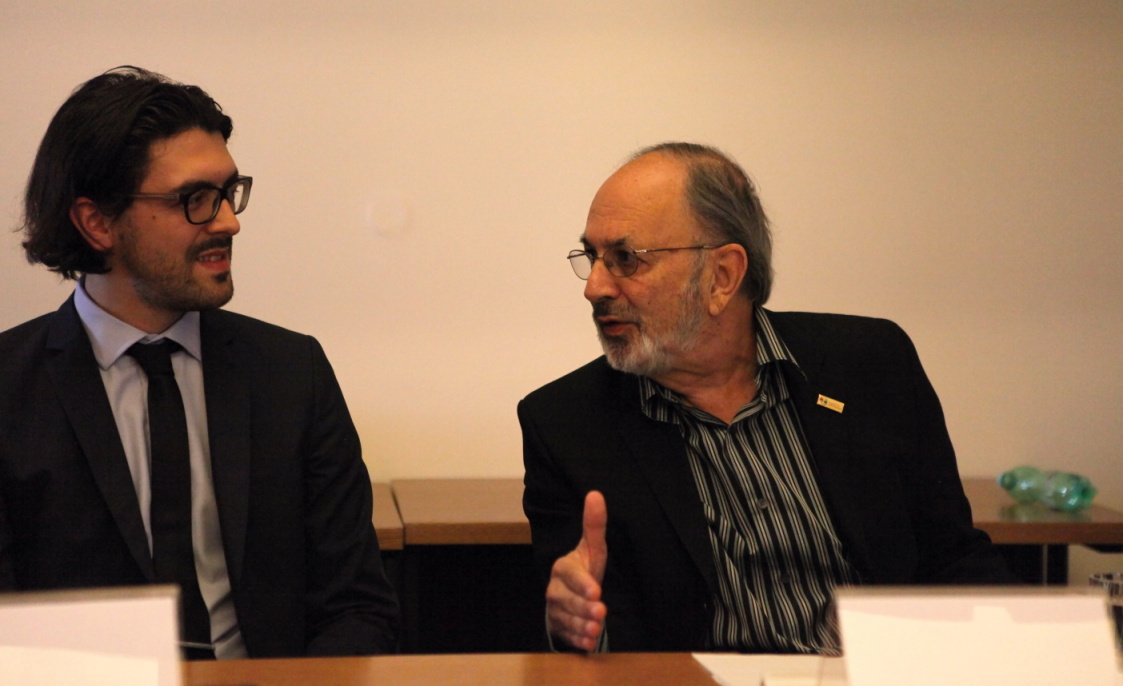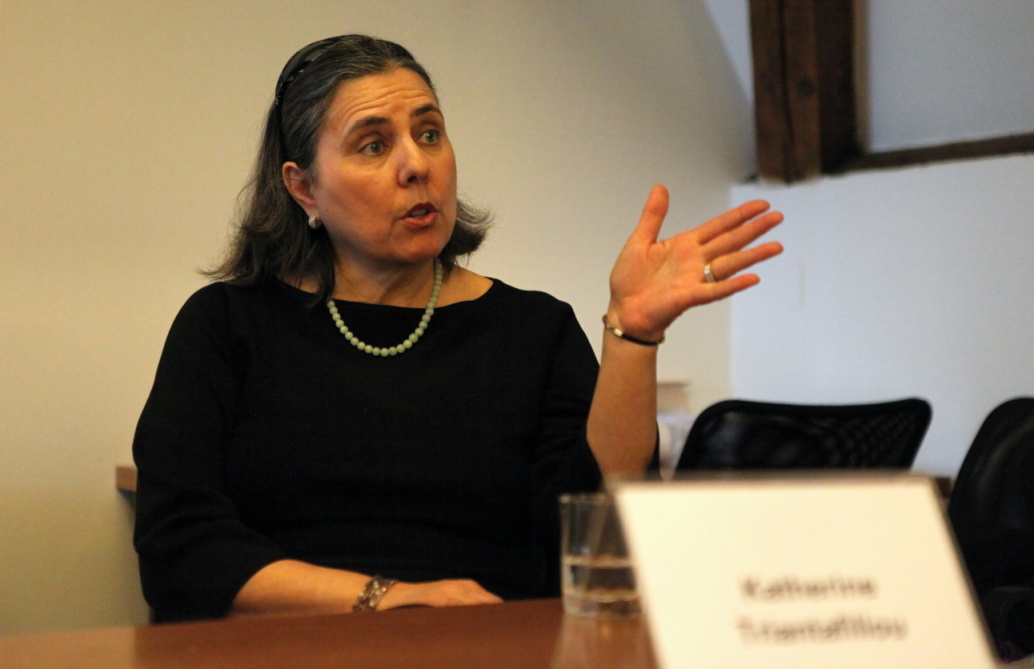 Once I was informed by Nan Waller Burnett that her colleagues from the organization Mediators Beyond Borders International (MBB) were heading for Prague and that we might organize a meeting with them I did not hesitate a minute. For the work of this NGO is simply admirable.
Once I was informed by Nan Waller Burnett that her colleagues from the organization Mediators Beyond Borders International (MBB) were heading for Prague and that we might organize a meeting with them I did not hesitate a minute. For the work of this NGO is simply admirable.
How to build more peace “able” world
The MBB was founded in 2006 in order to promote mediation not only in the USA but also worldwide. Its main task is expressed in the following motto: “The only lasting peace is the one built by the disputants themselves.” Hence, the MBB volunteers travel around the globe and teach the disputing parties and different communities the conflict resolution skills. They are definitely not a small group of persons: The whole organization may rely on more than 200 volunteers from different countries in North and South America, Europe, Asia, the Pacific and Africa who do not want anything less than to build a more peace “able” world.
 Such an ambitious mission determines the places where the mediators beyond borders should be most active – in communities that have been affected by wars, major civil conflicts, or natural disasters. Currently, their active projects take place in Colombia, Ecuador, Israel, Kenya, Nepal, and Sierra Leone.
Such an ambitious mission determines the places where the mediators beyond borders should be most active – in communities that have been affected by wars, major civil conflicts, or natural disasters. Currently, their active projects take place in Colombia, Ecuador, Israel, Kenya, Nepal, and Sierra Leone.
Further, the organization MBB tries to handle with disputes related to some global issues too. It is listed as an official observer organization for the United Nations’ Framework Convention on Climate Change (UNFCCC). Further, it has also received Special NGO Consultative Status with the Economic and Social Council (ECOSOC) as of July 27, 2012.
Diversity of mediation and respect to traditions
The members of the MBB describe themselves as “eclectic mediators” whose mission is to build capacity to resolve disputes wherever it is needed. However, as it was stated during the discussion that took place in Prague, the MBB volunteers do not come to the respective regions to dictate how to mediate. Their goal is rather to give assistance and advices to the local professionals and they do so with respect to local tradition and to different mediation approaches.
 Apart from those functions, the mediators beyond borders also mediate disputes directly, and they provide training and coaching in mediation and in many other conflict resolution techniques. They help individuals and organizations reach agreement, resolve conflicts, solve problems, build trust, and heal relationships.
Apart from those functions, the mediators beyond borders also mediate disputes directly, and they provide training and coaching in mediation and in many other conflict resolution techniques. They help individuals and organizations reach agreement, resolve conflicts, solve problems, build trust, and heal relationships.
Usually, the MBB’s members are mediators, lawyers, academics and other professionals with a significant amount of experiences in the field of dispute resolution. This is also the case of the four representatives of the Mediators Beyond Borders International – Nan Waller Burnett, Alan E. Gross, Katherine Triantafillou, Rachel Wohl who stopped by in Prague when travelling to Greece to proceed with another MBB’s project.
Round Table Discussion
The MBB Roundtable took part on Monday, April 20th 2015 at the Czech Bar Association headquarters in Prague. The audience was formed partly by lawyers and members of the ADR Section of the Czech Bar Association and partly by students of the Charles University in Prague. This fact influenced the atmosphere of the event in significant way since both the experienced mediators and mediation-beginners attended the event. This enabled to discuss the different issues in mediation from different perspective.
 The event was opened by welcoming speech by Martina Dolezalova, the head of the ADR Section of the Czech Bar Association. Then the informal discussions started. Already the first question focussing on the projects administrated by the Mediators Beyond Borders showed how this organization is active in many different places and in many different fields. The help to the victims of Hurricane Katrina was used as an illustration and the first example. The others followed. Rachel Wohl mentioned the Middle East Initiative, where the MBB is working with Neve Shalom Wahat Al Salam (NSWAS), an intentional Israeli village of Palestinian/Israeli and Jewish/Israeli families. Another example of MBB’s effort was described by Alan E. Gross: Training and advising Liberian residents of Buduburam Refugee Settlement in Ghana in response to requests to set up a community and peer mediation service. He also described how the MBB’s volunteers worked with former child soldiers. Last, but not least, Katherine Triantafillou described her effort to help to resolve the disputes related to women’s, lesbian and gay issues.
The event was opened by welcoming speech by Martina Dolezalova, the head of the ADR Section of the Czech Bar Association. Then the informal discussions started. Already the first question focussing on the projects administrated by the Mediators Beyond Borders showed how this organization is active in many different places and in many different fields. The help to the victims of Hurricane Katrina was used as an illustration and the first example. The others followed. Rachel Wohl mentioned the Middle East Initiative, where the MBB is working with Neve Shalom Wahat Al Salam (NSWAS), an intentional Israeli village of Palestinian/Israeli and Jewish/Israeli families. Another example of MBB’s effort was described by Alan E. Gross: Training and advising Liberian residents of Buduburam Refugee Settlement in Ghana in response to requests to set up a community and peer mediation service. He also described how the MBB’s volunteers worked with former child soldiers. Last, but not least, Katherine Triantafillou described her effort to help to resolve the disputes related to women’s, lesbian and gay issues.
 The participants had the opportunity to send their question in advance as well as to actively participate in discussion and they took advantage of that opportunity in really vigorous way. Among the topics that were discussed, one may mention the basic qualities of perspective mediators, how to promote mediation in countries where the population is not aware of it and how to persuade lawyers to be more in favour of mediation.
The participants had the opportunity to send their question in advance as well as to actively participate in discussion and they took advantage of that opportunity in really vigorous way. Among the topics that were discussed, one may mention the basic qualities of perspective mediators, how to promote mediation in countries where the population is not aware of it and how to persuade lawyers to be more in favour of mediation.
The Biggest Accomplishment in Mediation
I took an advantage of being the moderator of this discussion and I reserved the last question for myself: What was the panellists’ biggest accomplishment in mediation? Given the fact I shared the table with professionals who have done mediation all around the globe in difficult high conflict situations, I expected to hear stories describing some international cases well covered by world media. Instead, Rachel Wohl mentioned a case of two mothers of two children having the same father. The women had initially not even been able to speak to each other, yet, as a result of mediation, they exchanged the phone numbers after the session had ended.
There is a moral in this answer: the achievement in mediation cannot be measured by the amount in dispute or publicity of the case, but only by the extent of help the mediator offered to the parties…
And what is your biggest achievement in mediation?
________________________
To make sure you do not miss out on regular updates from the Kluwer Mediation Blog, please subscribe here.


